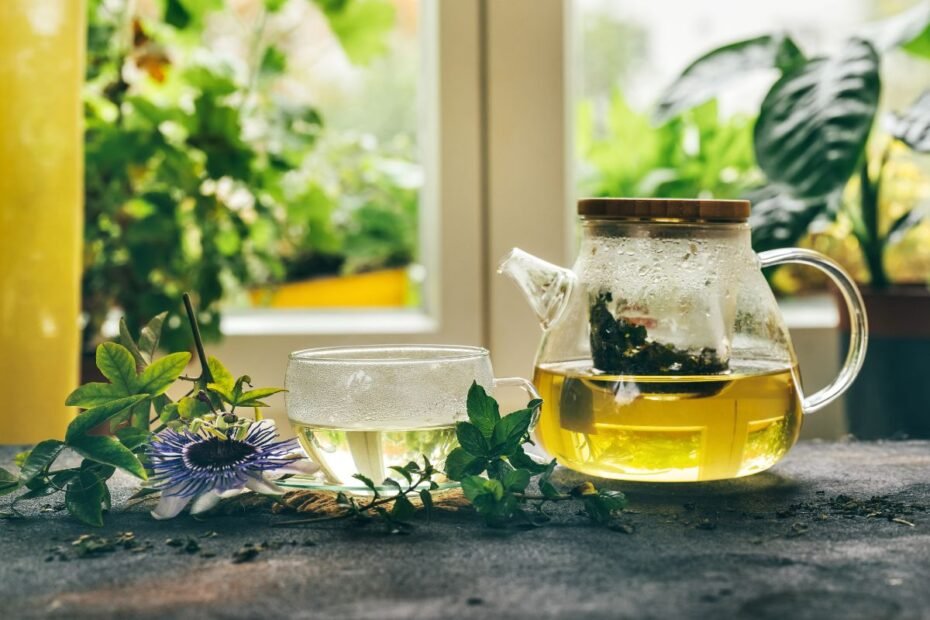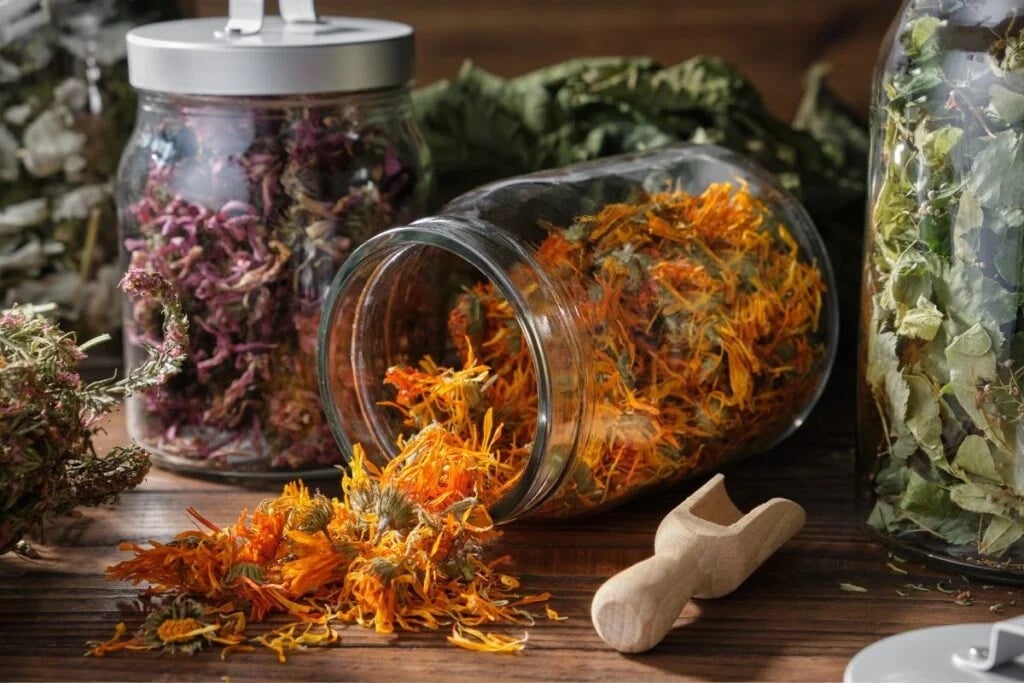The exotic plant passionflower can grace your garden, bringing delight to the eyes and joy to the soul. Passionflower can add color (literally and figuratively) to your food. The plant can also help your health, and especially your emotions. Passion tea can be the key for those looking for emotional calm and those struggling with insomnia.
What Is a Passionflower?
Passionflower (Passiflora) is a climbing jungle plant native to Central and South America, Australia, New Zealand, Africa, and Asia, except Europe. It was introduced to Europe in the 16th century as one of the relics of the conquest of the New World.
It is known over 500 species of this plant. Passionflowers can grow as herbaceous climbers that wrap around the trunks of trees, or their stems can be woody. All species of passionflower are spectacularly beautiful plants, with large, pinnate (3 or 5-part), bright green leaves, and exotically beautiful flowers. All passion fruit ripens into juicy berries. Only about 60 species are edible.
Some species of passion fruit, as well as being beautiful and producing edible fruit, have medicinal properties. These latter qualities have led to the inclusion of passion fruit in folk medicine.
Passionflower: Beautiful Plant and Medicinal Herb
It is not surprising that the American Indians were the first people to put passionflower’s healing properties into practice. The indigenous peoples of Central and South America used passionflower as a calming agent to relieve emotional tension and help them fall asleep. Passionflower is still most valued in folk medicine due to its properties.
The pink-flowered passionflower (Passiflora incarnata), usually named maypop or purple passionflower, has healing properties. This species of passionflower has trifoliate leaves. It produces single, compound, reddish-blue, fragrant flowers 7-9 cm across. It produces edible, medium-sized, green fruit.
The whole above-ground part of the passion fruit (leaves, stems, and flowers) is usually used for passion fruit tea. Harvest the raw material for the medicinal tea when the plant starts to flower. Crush and dry the passionflower herb to produce a tea that has a calming, relaxing, and tranquilizing effect on the nerves.
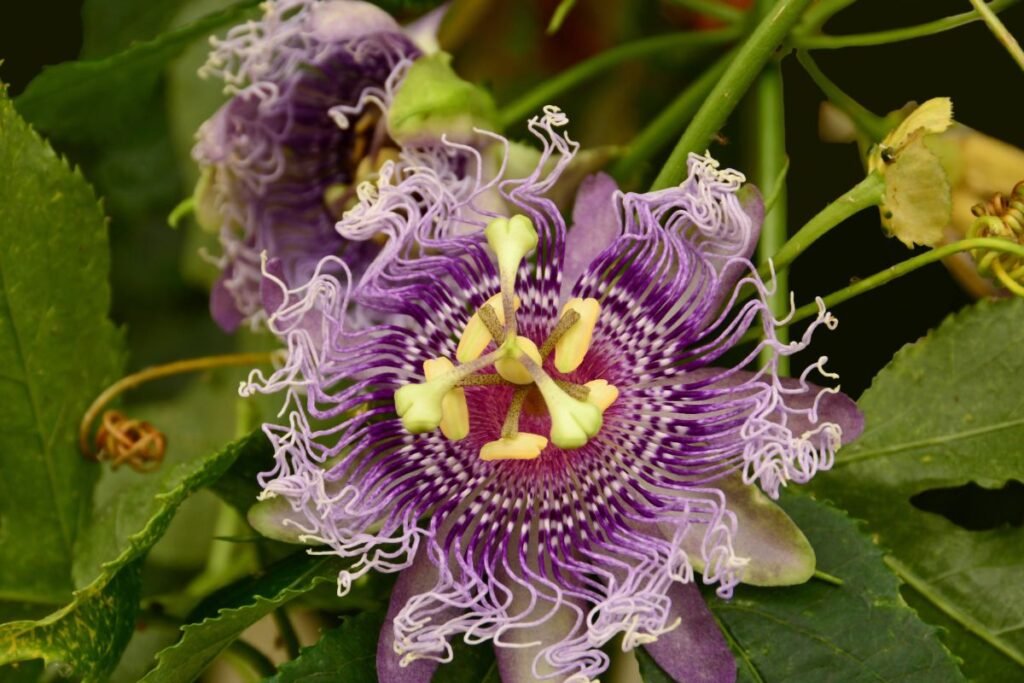
Beneficial Properties of Purple Passionflower
Maypop contains cyanogenic glycosides, flavonoids (apigenin, rutin), alkaloids, sapanarin, and phytosterols. These active ingredients give healing powers to the plant.
Folk medicine has used this plant for centuries. But what does clinical research say about its health benefits?
“Phytotherapy Research” (2011) published a study where participants with mild sleep disorders drank passionflower tea daily for seven days. They reported that sleep quality improved. Preliminary research suggests that passionflower may help downsize insomnia and anxiety. It is because the substances in the plant increase the levels of gamma-aminobutyric acid (GABA) in the brain. GABA is a natural amino acid that reduces central nervous system activity. This results in a relaxed body, improved mood, possible pain relief, and better sleep quality.
Reliable studies have also shown that passionflower is quite effective in reducing the symptoms of generalized anxiety disorder. In addition, it has fewer side effects compared to prescription products.
The researchers investigated the calming effect of passionflowers on fear-induced anxiety. Two focus groups involving people with fear and anxiety before surgery showed encouraging results. Patients who took passionflower tea felt less anxiety than those who took a placebo.
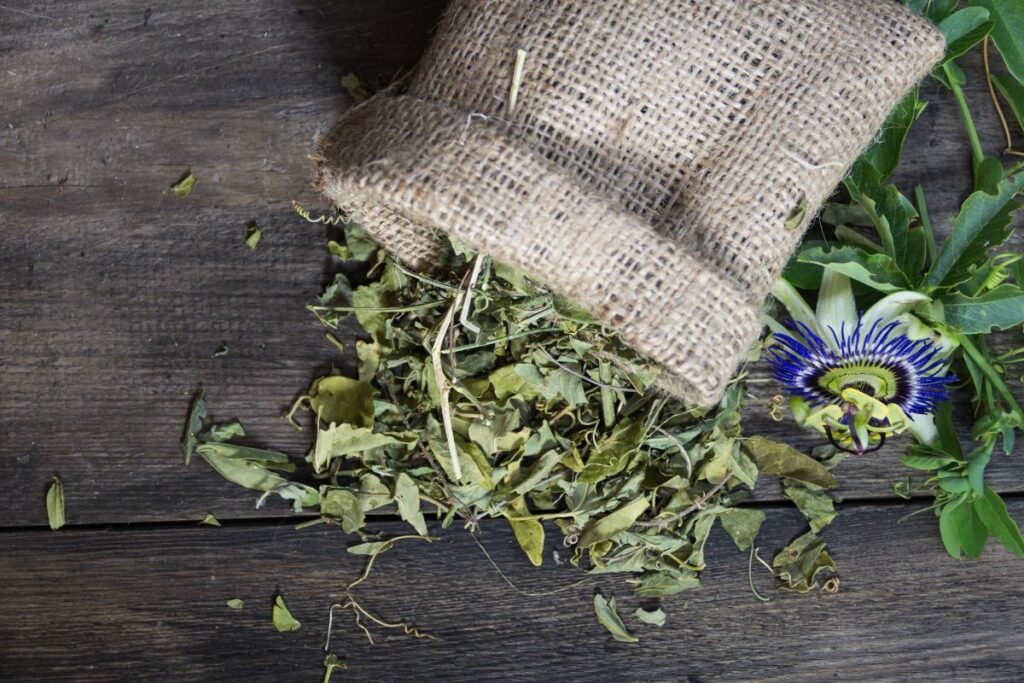
Passion Tea: Easy to Prepare
Prepare passionfruit tea like most other herbal teas: brew it with hot water. People describe passion tea as having a mild flavor with an earthy spice. It is suitable to drink with floral honey, which brings out the floral notes.
Use the following proportions of ingredients, to prepare a cup of tea:
- two teaspoons (or 2 g) of dried herb of passion,
- one cup (approx. 250 ml) of water.
Brew the tea in a cup. Then fill a saucer for 6-8 minutes, strain, and drink. Alternatively, boil it over low heat for approximately 10-15 minutes, a more concentrated tea you will get.
Drink before bedtime. You should see the results after seven days if you drink one cup daily.
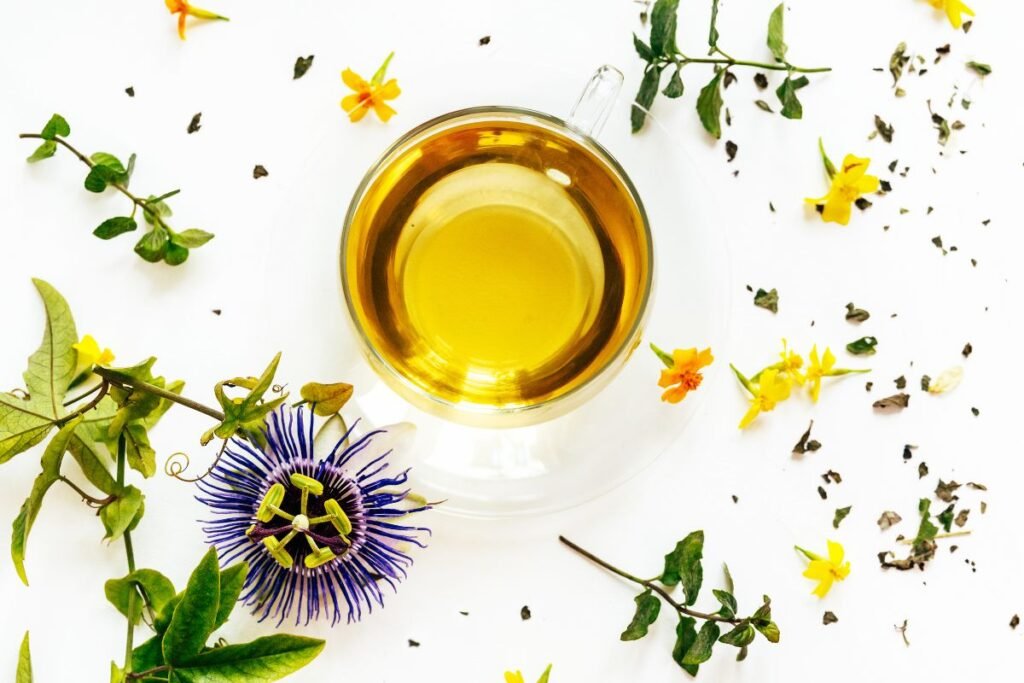
Variations of Passion Tea
You can mix passion herb tea with other herbs with a calming effect. It obtains a variety of flavors and a better therapeutic effect.
To increase sleep quality, use mixtures of passionflower with chamomile or valerian root. Passionflower also softens the unpleasant taste and smell of valerian tea. It can be a lifesaver for people who barely tolerate valerian.
Passionflower and lemon balm tea is a useful sedative. The combination produces a light citrus flavor—a mood tonic.
Raspberry Leaf and Passion Tea to Relieve Menstrual Pain
Folk remedies can help you feel better if you have painful periods. Therefore, passionflower and raspberry leaf tea is an option.
For the tea, you will need:
- equal parts of 1 teaspoon each of dried passionflower herb and dried raspberry leaves,
- one standard cup (approximately 250–300 ml) of water.
Place the tea leaves in a tea-making bowl and fill it with boiling water. Steep for 20 minutes, strain, and drink.
Drink this tea several times a day, depending on the pain level.
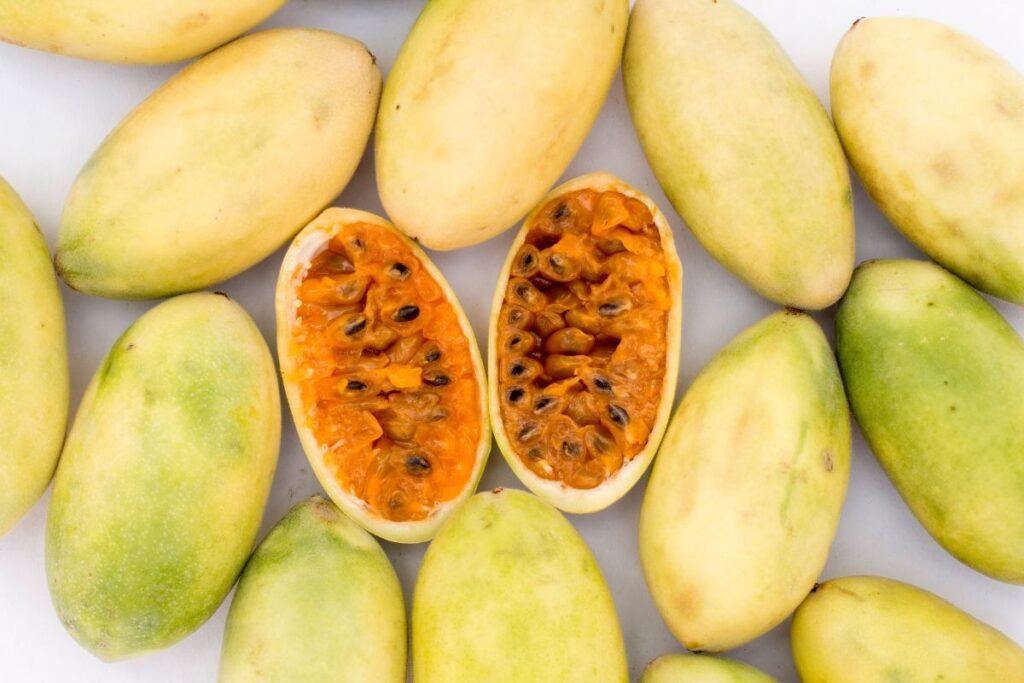
Passion Fruit: A Health Product
At least 60 species of passion fruit produce edible fruit. You can eat nutritious fruit seeds and pulp inside, except for the peel.
Passion fruit contains high levels of vitamins A and C, calcium, potassium, magnesium, iron, phosphorus, niacin, and vitamin B6. The flesh of passion fruit is rich in dietary fiber, a valuable component of any diet to regulate the digestive system and maintain intestinal health. Passion fruit has a low glycemic index (GI). It is recommended for people with diabetes. In addition, eating passion fruit can help control high blood pressure.
Side Effects of Passion Tea
Passionflower, like most other medicinal plants, can have side effects. The risk of this increases if passion tea preparations are overdosed.
Studies showed that daily consumption of 800 mg of dried passionflower herb can cause drowsiness, uncoordinated movement (ataxia), and disorientation. In contrast, 3.5 g per day of passionflower extract is a dangerous dose that may cause adverse side effects.
Do not take passionflower together with sedatives, or consult your doctor before taking this combination first.
Do not use passionflower during pregnancy; it may cause uterine contractions. There is insufficient data on whether it is safe to take passionflower while breastfeeding. Therefore, to protect the baby, passion tea is not recommended for breastfeeding women.
Sources:
https://www.nccih.nih.gov/health/passionflower
https://www.britannica.com/plant/passion-flower
https://www.healthline.com/health/anxiety/calming-effects-of-passionflower
https://www.healthline.com/health/food-nutrition/passion-flower-tea
https://pubmed.ncbi.nlm.nih.gov/21294203/
https://www.ncbi.nlm.nih.gov/pmc/articles/PMC2941540/
https://www.researchgate.net/publication/227531401_Passionflower_in_the_treatmenthttps://www.medicalnewstoday.com/articles/324383https://www.therighttea.com/passion-flower-tea.html
Associative photos from © Canva.
